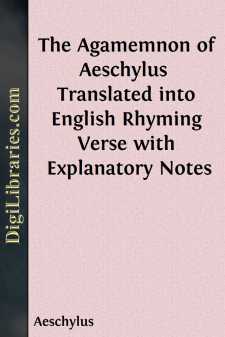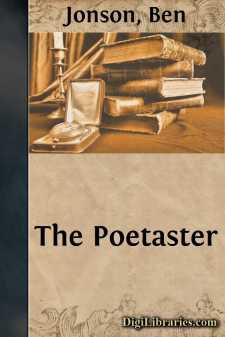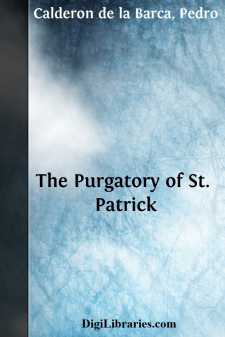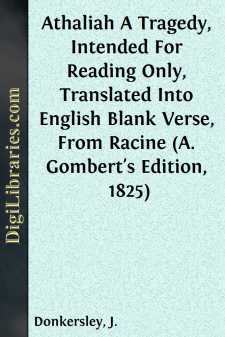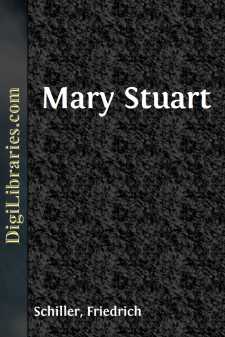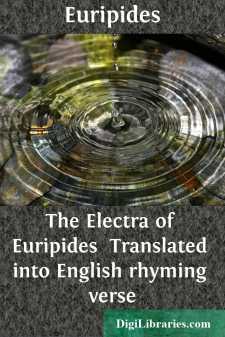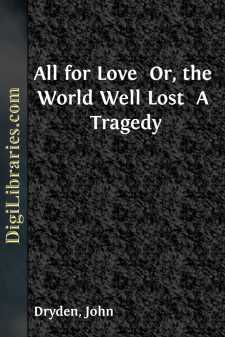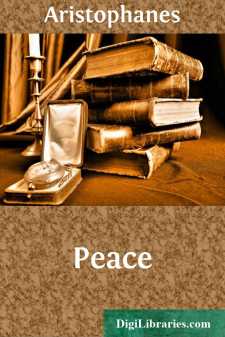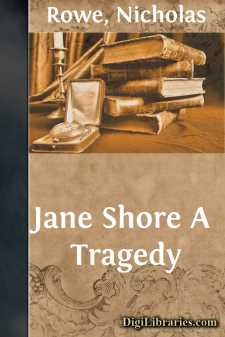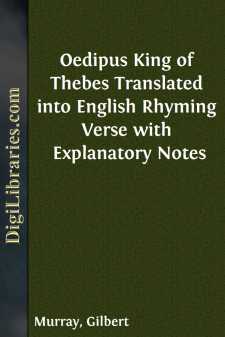Drama
- American 43
- Ancient, Classical & Medieval
- Asian 7
- Caribbean & Latin American 2
- Continental European 50
- English, Irish, Scottish, Welsh 91
- General 105
- Middle Eastern 1
- Religious & Liturgical 1
- Shakespeare 1
Ancient, Classical & Medieval Books
Sort by:
by:
Aeschylus
PREFACE The sense of difficulty, and indeed of awe, with which a scholar approaches the task of translating the Agamemnon depends directly on its greatness as poetry. It is in part a matter of diction. The language of Aeschylus is an extraordinary thing, the syntax stiff and simple, the vocabulary obscure, unexpected, and steeped in splendour. Its peculiarities cannot be disregarded, or the translation...
more...
by:
Ben Jonson
INTRODUCTION THE greatest of English dramatists except Shakespeare, the first literary dictator and poet-laureate, a writer of verse, prose, satire, and criticism who most potently of all the men of his time affected the subsequent course of English letters: such was Ben Jonson, and as such his strong personality assumes an interest to us almost unparalleled, at least in his age. Ben Jonson came of the...
more...
Two of the dramas contained in this volume are the most celebrated of all Calderon's writings. The first, "La Vida es Sueno", has been translated into many languages and performed with success on almost every stage in Europe but that of England. So late as the winter of 1866-7, in a Russian version, it drew crowded houses to the great theatre of Moscow; while a few years earlier, as if to...
more...
by:
J. Donkersley
PREFACE. Racine, the author of Athalie (Athaliah), flourished in the latter half of the 17th century. At his appearance, Corneille, the great French Dramatist, was in the full splendour of his fame, whose rival he was afterwards recognised to be. Athalie is a Tragedy in rhyme, consisting of six Iambic feet, similar to the Alexandrine verse found occasionally in our English poets at the termination of a...
more...
SCENE I. A common apartment in the Castle of Fotheringay. HANNAH KENNEDY, contending violently with PAULET, who is aboutto break open a closet; DRURY with an iron crown. KENNEDY.How now, sir? what fresh outrage have we here?Back from that cabinet! PAULET.Whence came the jewel?I know 'twas from an upper chamber thrown;And you would bribe the gardener with your trinkets.A curse on woman's...
more...
by:
Euripides
Introduction[1] The Electra of Euripides has the distinction of being, perhaps, the best abused, and, one might add, not the best understood, of ancient tragedies. "A singular monument of poetical, or rather unpoetical perversity;" "the very worst of all his pieces;" are, for instance, the phrases applied to it by Schlegel. Considering that he judged it by the standards of conventional...
more...
by:
John Dryden
INTRODUCTORY NOTE The age of Elizabeth, memorable for so many reasons in the history of England, was especially brilliant in literature, and, within literature, in the drama. With some falling off in spontaneity, the impulse to great dramatic production lasted till the Long Parliament closed the theaters in 1642; and when they were reopened at the Restoration, in 1660, the stage only too faithfully...
more...
by:
Aristophanes
SCENE: A farmyard, two slaves busy beside a dungheap; afterwards, in Olympus. FIRST SERVANT Quick, quick, bring the dung-beetle his cake. SECOND SERVANT Coming, coming. FIRST SERVANT Give it to him, and may it kill him! SECOND SERVANT May he never eat a better. FIRST SERVANT Now give him this other one kneaded up with ass's dung. SECOND SERVANT There! I've done that too. FIRST SERVANT And...
more...
by:
Nicholas Rowe
ACT THE FIRST. SCENE I. THE TOWER. Enter the Duke of Gloster, Sir Richard Ratcliffe, and Catesby. Glos.Thus far success attends upon our councils,And each event has answer'd to my wish;The queen and all her upstart race are quell'd;Dorset is banish'd, and her brother Rivers,Ere this, lies shorter by the head at Pomfret.The nobles have, with joint concurrence, nam'd meProtector of...
more...
by:
Gilbert Murray
PREFACE If I have turned aside from Euripides for a moment and attempted a translation of the great stage masterpiece of Sophocles, my excuse must be the fascination of this play, which has thrown its spell on me as on many other translators. Yet I may plead also that as a rule every diligent student of these great works can add something to the discoveries of his predecessors, and I think I have been...
more...


